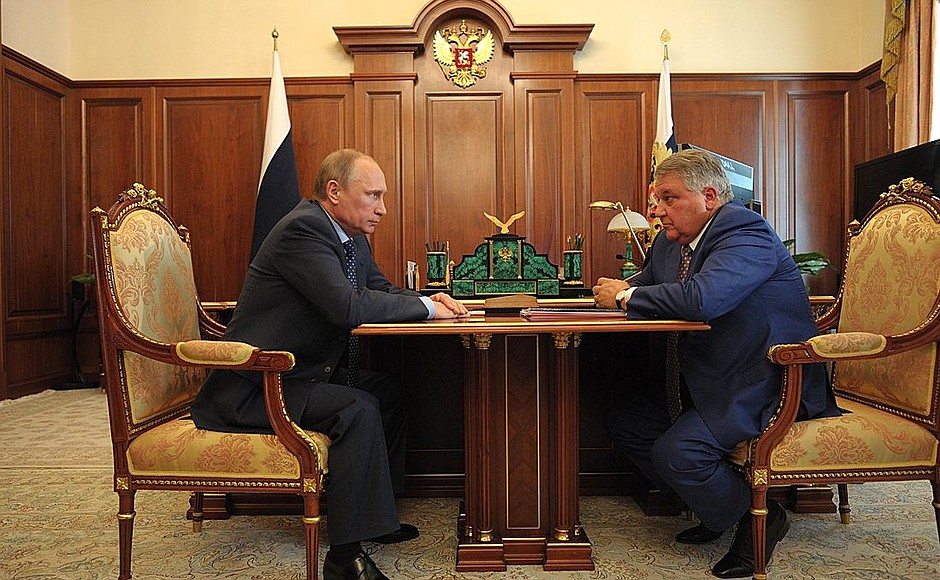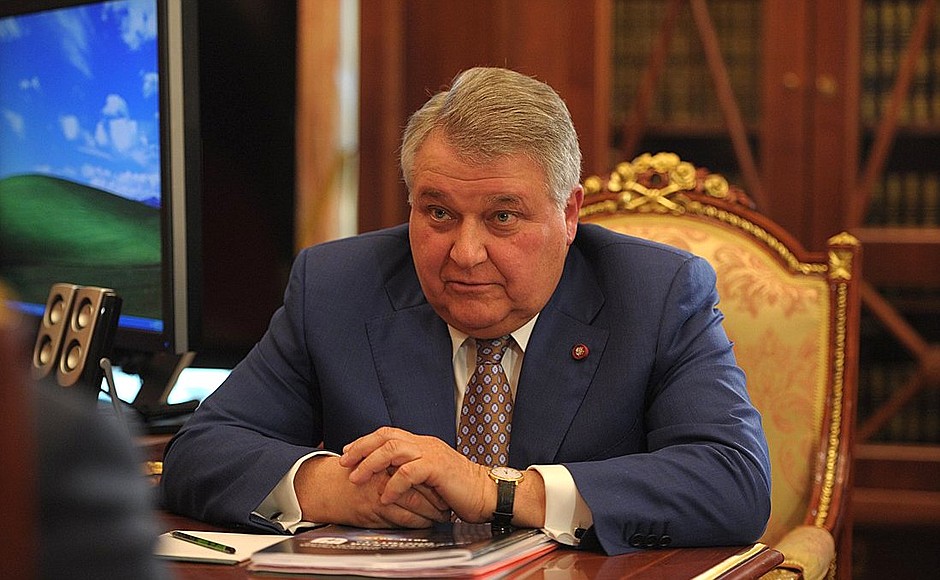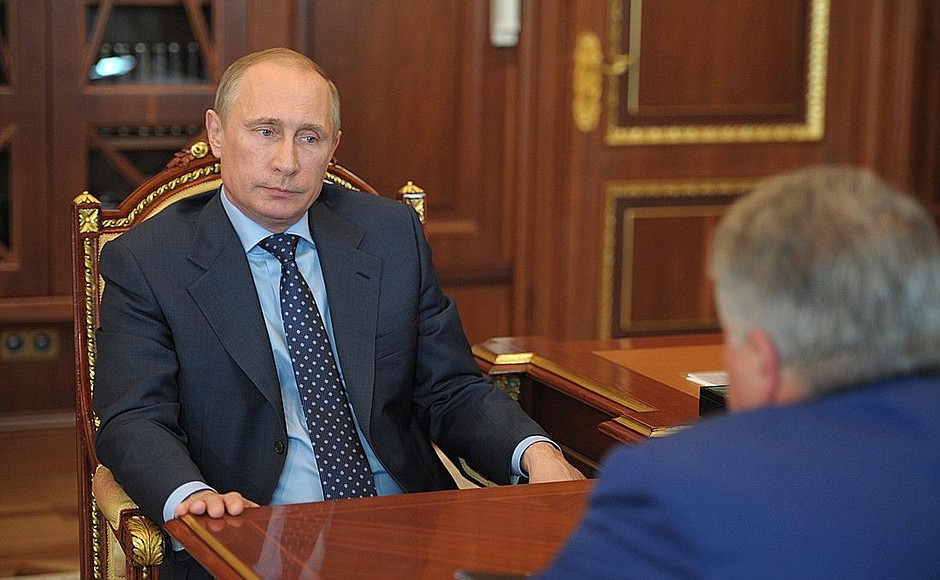Mr Kovalchuk briefed the President about the results of implementing a state programme for developing the Kurchatov Institute.
* * *
President of Russia Vladimir Putin: Mr Kovalchuk, four years ago, you proposed a development programme for the Kurchatov Institute. The Kurchatov Institute is one of the leading research institutions working in nuclear physics, if not the leading institution. And you have received six billion each year with the goal of development?
Director of the National Research Centre Kurchatov Institute Mikhail Kovalchuk: Yes, that was the amount.
Vladimir Putin: I know that the programme is about to conclude, and I would like to hear about the results we have reached. Moreover, I know you are currently working on the next programme.
Mikhail Kovalchuk: Mr President, I would like to report to you about the most significant results reached while implementing the programme launched on your initiative and the most important results that are significant for our nation’s economy.
As you know, the institute used to be called the Institute of Nuclear Energy, and nuclear technologies and nuclear energy remain our most important priority. However, since you declared a Russian initiative in 2007, we were able to formulate a fundamentally new trend – a new, breakthrough direction within the framework of development.
This has to do with the development of convergent technologies. In essence, we are talking about creating systems and materials that resemble natural ones. This is a new direction where we have also reached significant results, and I would like to tell you about it.
Finally, is our international work. You know, in recent years, there has been significant restructuring in the global scientific landscape. Today, Russia has become an essential part of the international scientific landscape.
Several major projects are being implemented in Europe, such as ITER (the creation of a thermonuclear reactor in the south of France), CERN, which everyone is talking about, and two projects in Germany, for example the European x-ray free electron laser.
Vladimir Putin: Is that in Hamburg?
Mikhail Kovalchuk: Yes, in Hamburg, exactly. This is a project you actively supported. There is also a heavy ion accelerator in Darmstadt. Russia is investing around 2.5 billion euro in these projects.
The ITER is essentially a tokamak. It was thought up several decades ago at the Kurchatov Institute; it is a Soviet, Russian invention.
Like the idea of a free electron laser in Germany, it is also an idea originating from Russian, Soviet physicists. In other words, in addition to the intellectual, human and technological input, Russia has now become the second financial partner after Germany.
In this regard, it has become an entirely different level of cooperation: we have become an inherent part of the international landscape. I wanted to tell you about this in more detail as well.
Vladimir Putin: This happened here a couple years ago at your well-known new platform
Mikhail Kovalchuk: This was a year ago, on April 30, 2013.
Vladimir Putin: Wonderful. So it was in Gatchina?
Mikhail Kovalchuk: Yes.
Vladimir Putin: Wasn’t this related to the Kurchatov Institute being given several more platforms? How do the results of this consolidation look?
Mikhail Kovalchuk: This resulted in the creation of the first national research centre in Russia, the Kurchatov Institute, which was created based on your executive order, followed by a federal law. From our point of view, this was a vitally important step, because we when we united the potential of the largest interdisciplinary institutes in the country and in the world (first and foremost, nuclear physics institutes), landmark institutions of a global scale, it became possible to launch deep coordination in all the work.
Naturally, there have been problems along the way; it is a difficult process and a complex structure. Nevertheless, we were able to achieve a great deal in terms of coordination. Our presence in the international landscape today is significant, and its recognition by our foreign partners is largely related to that very decision.
Vladimir Putin: Have you been able to achieve synergy?
Mikhail Kovalchuk: Absolutely. We have synergy. I want to tell you what we are still missing for full synergy. For example, the PIK reactor you are talking about; you have signing instructions on creating an international centre. This is the result of synergy and cooperation between our institutes. It will be the most powerful source of continuous action neutrons and research reactor in the world.
Vladimir Putin: The institute’s previous development programme was planned for three years?
Mikhail Kovalchuk: Three years, that’s right. It has ended and here is the report I wanted to show you. Now we have a new programme.
Vladimir Putin: Are you still working on it or is it ready?
Mikhail Kovalchuk: It is already underway. It has begun, it has been launched, but we are acting within the framework of a whole set of instructions from you and the Government.
Vladimir Putin: Good, let’s discuss it.
<…>


